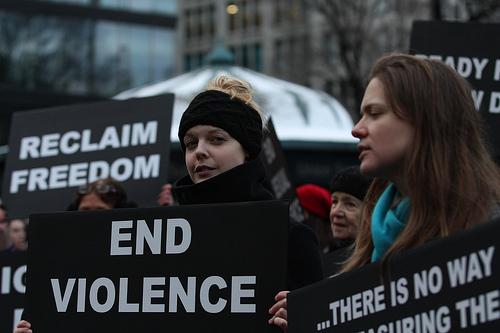A new study on domestic and sexual violence reveals that, while one in three women report being a victim of domestic abuse and more than 50 percent of the men and women surveyed say they know a survivor of domestic violence, 67 percent of Americans have never discussed the issue with friends or family.
The Avon Foundation for Women interviewed 301 teens between the ages of 15 and 17 and 1,006 adults 18 and over for the study, which researchers say “uncovers staggering silence and inaction around domestic violence and sexual assault.”
“That silence leaves victims trapped by the shame, stigma and fear that these crimes carry,” Avon Foundation for Women president Carol Kurzig said in a statement on the study.
But silence isn’t the only problem victims face.
More than 70 percent of women domestic violence survivors report telling someone what happened to them, but 58 percent of those women said no one helped them. And the problem isn’t just limited to women; one in seven men report being a victim of domestic violence. Of the 47 percent of men who report telling someone about the abuse, close to 90 percent said that no one intervened or helped them.
“If we can encourage more people to start talking, we can end that cycle and bring these issues to light in a new way,” Kurzig noted.
The research seems to bear this out.
The study found that 75 percent of Americans said they would step in and help if they saw someone being assaulted, but silence around the issue creates barriers to action, researchers found. But increased open discussion of domestic and sexual violence could help to create the conditions for more active intervention: The report found that almost 70 percent of survey respondents said that talking more about this kind of violence would help them understand the problem better — and lead them to act.

